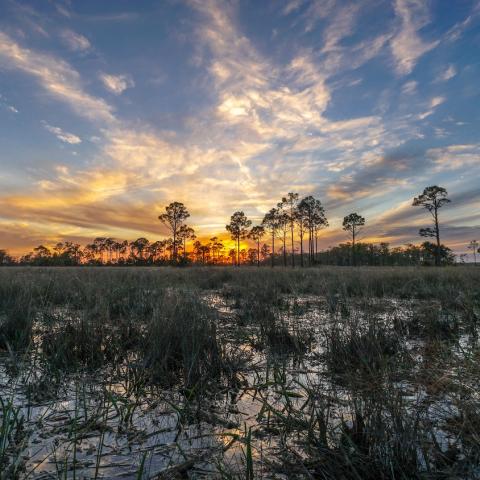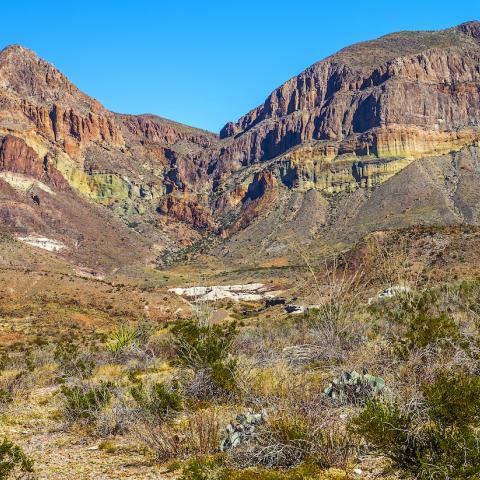
Big Bend National Park staff are working to reduce the numbers of non-native Barbery sheep to protect the park's small numbers of Desert bighorns (above)/NPS file
Airborne sharpshooters will take to the skies over Big Bend National Park on Sunday in a bid to reduce the numbers of non-native Barbary sheep in the park so they don't jeopardize the small numbers of native Desert Bighorn sheep.
The Deadhorse Mountains and surrounding areas, including the Dagger Flat Road and Old Ore Road, will be closed to the public from August 11 – August 17 while the Park Service works with Texas Parks and Wildlife to remove the Barbary Sheep using helicopters and staff trained in aerial shooting operations.
The purpose of the closure is to keep visitors safe. All paved roads will remain open.

Efforts are being made to remove non-native Barbary sheep from Big Bend National Park/NPS
Barbary sheep (aoudad) have been in the park for the past three decades and have increased significantly in recent years. Hundreds of Barbary sheep inhabit the park, but the park has only one very small known population of native Desert Bighorn sheep. Barbary sheep control is necessary as they compete with native species including preventing Desert Bighorn from accessing water, threaten biodiversity, and impair park visitor’s ability to experience natural conditions and scenery.
This effort is part of Big Bend’s long-term, integrated approach to control exotic animals and protect park resources. Management of aoudad is in keeping with the Big Bend Exotic Animal Management Plan and Environmental Assessment, finalized in June, 2018. To see this plan, visit this site.




 Support Essential Coverage of Essential Places
Support Essential Coverage of Essential Places







Comments
Seems like they are missing an opportunity to use the Barbary sheep as an income scource by allowing a special season for hunters to reduce the population. Instead they are going to spend a few hundred thousand flying around making kills for no income.
Based on past experience, in most cases it costs more to manage a public hunt, making sure the non-native animals are removed, not the native ones, and no damage to vegetation and archeological sites, than it costs to cooperate with state Parks & Wildlife on reduction if not eradication efforts. There's also the issue of killing females affects their populations more, but trophy hunters prefer killing males. And, note that these Barnary Sheep, and the Oryx & Ibex in White Sands, were deliberately introduced by state fish & game agencies to increase opportunities for hunters (also, largely funded by hunters via licenses). If trophy hunters were able to sufficiently reduce the population, that would have happened in areas outside the National Parks long before the introduced populations spread into the parks. Personally, I'm all for more hunting permits issues for these introduced big game on state lands outside of the parks.
Would it be possible to tranquilize the offending sheep and transport them to areas where they would be more beneficial? Mass slaughtering of defenseless animals is inhumane.